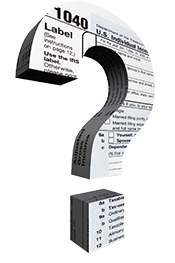Now is the time to begin tax planning for your 2021 return. Here are some ideas:
 Contribute to retirement accounts. Tally up all your 2021 contributions to retirement accounts so far, and estimate how much more you can stash away between now and December 31. So, consider investing in an IRA or increase your contributions to your employer-provided retirement plans. Remember, you can reduce your 2021 taxable income by as much as $19,500 by contributing to a retirement account such as a 401(k). If you’re age 50 or older, you can reduce your taxable income by up to $26,000!
Contribute to retirement accounts. Tally up all your 2021 contributions to retirement accounts so far, and estimate how much more you can stash away between now and December 31. So, consider investing in an IRA or increase your contributions to your employer-provided retirement plans. Remember, you can reduce your 2021 taxable income by as much as $19,500 by contributing to a retirement account such as a 401(k). If you’re age 50 or older, you can reduce your taxable income by up to $26,000!- Contribute directly to a charity. If you don’t have enough qualified expenses in order to itemize your deductions, you can still donate to your favorite charity and cut your tax bill. For 2021, you can reduce your taxable income by up to $300 if you’re single and $600 if you’re married by donating to your favorite charity.
- Consider a donor-advised fund. With a 2021 standard deduction of $12,550 if you’re single and $25,100 if you’re married, you may not be able to claim your charitable donations as a tax deduction if the total of your annual donations is below these dollar amounts. As an alternative, consider donating multiple years-worth of contributions to a donor-advised fund if you have the available cash so you can exceed the standard deduction this year. Then make your cash contributions from the donor-advised fund to your favorite charities over the next three years.
- Increase daycare expenses. If you and/or your spouse work and have children in daycare, or have an adult that you care for, consider using a daycare so you and a spouse can both work. This is because there is a larger tax break in 2021. If you have one qualifying dependent, you can spend up to $8,000 in daycare expenses while cutting your tax bill by $4,000. If you have more than one qualifying dependent, you can spend up to $16,000 in daycare expenses while cutting your tax bill by $8,000. To receive the full tax credit, your adjusted gross income must not exceed $125,000.
- Contribute to an FSA or an HSA. Interested in paying medical and dental expenses with pre-tax dollars? Then read on…If you have a flexible spending account (FSA), you can contribute up to $2,750 in 2021. This allows you to pay for medical expenses in pre-tax dollars! Even better, unspent funds in an FSA can now be rolled from 2021 to 2022. And if you have a health savings account (HSA), you can contribute up to $3,600 if you’re single and $7,200 if you’re married. So, add up all your contributions to your FSA or HSA so far in 2021 and see how much more you can contribute between now and December 31.


 With the April 15 tax filing deadline right around the corner, here are answers to some common tax questions.
With the April 15 tax filing deadline right around the corner, here are answers to some common tax questions. You’ve probably already received several letters and phone calls from charities asking for donations. Most requests are from legitimate organizations. Some, however, are bogus charities set up by con artists who use the holiday spirit to their financial advantage.
You’ve probably already received several letters and phone calls from charities asking for donations. Most requests are from legitimate organizations. Some, however, are bogus charities set up by con artists who use the holiday spirit to their financial advantage. There’s still time to reduce your potential tax obligation and save money this year (and next). Here are some ideas to consider:
There’s still time to reduce your potential tax obligation and save money this year (and next). Here are some ideas to consider:
 As the year draws to a close, there are several tax-saving ideas you should consider. Use this checklist to make sure you don’t miss an opportunity before the year is out.
As the year draws to a close, there are several tax-saving ideas you should consider. Use this checklist to make sure you don’t miss an opportunity before the year is out.